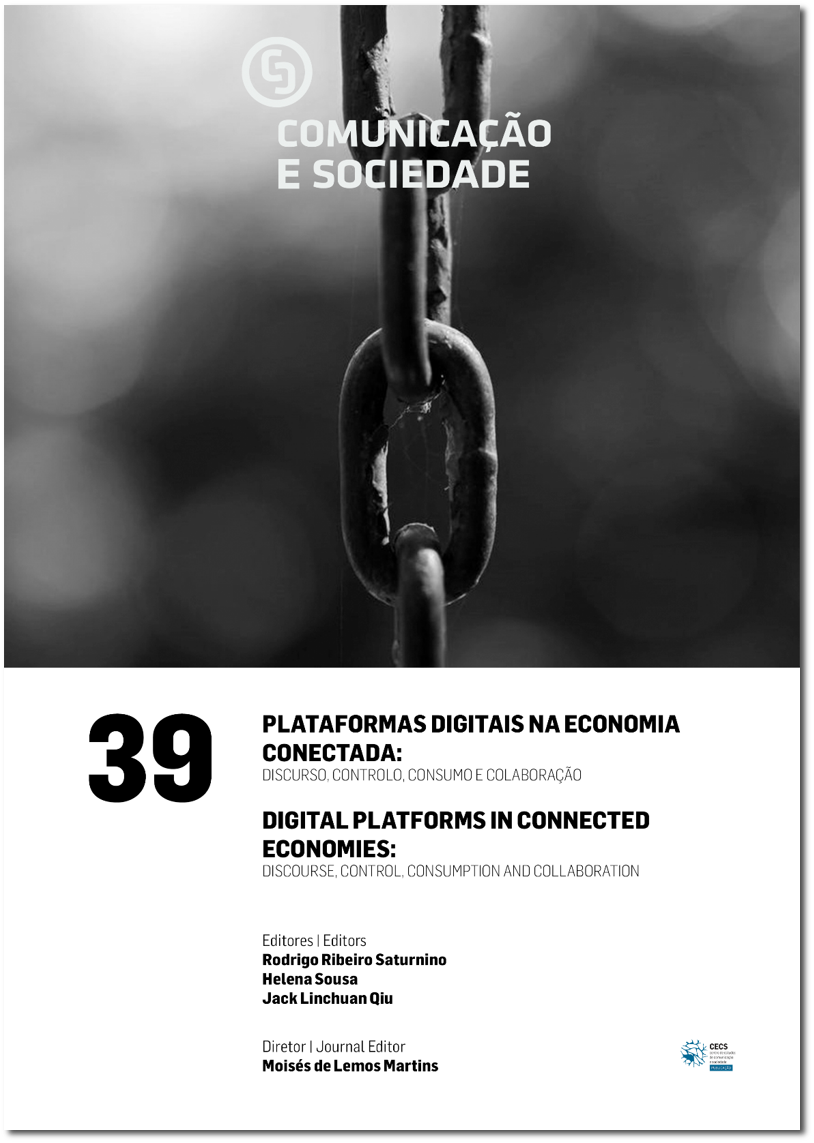Crowdfunding Platforms in the Political Economy of Alternative Media
DOI:
https://doi.org/10.17231/comsoc.39(2021).2863Keywords:
crowdfunding, alternative media, sustainability, political economyAbstract
Alternative media appeared in the digital environment, taking advantage of the low distribution costs and the potential for public participation. Increasingly, they use crowdfunding or collective financing platforms as a model for maintaining activities. This article maps how alternative media from Portugal, Spain and Brazil articulate crowdfunding platforms with their financing strategies, on the one hand, and with social media platforms, on the other. The study aims to discuss the possibilities and limitations of the different crowdfunding platforms for these means. The methodological design includes personal interviews, online observation about alternative media and a content analysis about their financing and specifically the digital financing platforms. Alternative media articulate their use of crowdfunding platforms with those of social networks, in a constant work of demonstrating the relevance of the type of journalism they practice and their social contribution in search of public involvement as a funder.
Downloads
References
Atton, C. (2002). Alternative media. Sage.
Carvajal, M., García-Avilés, J. A., & González, J. L. (2012). Crowdfunding and non-profit media. Journalism Practice, 6(5–6), 638–647. https://doi.org/10.1080/17512786.2012.667267
Couldry, N., & Curran, J. (2003). Contesting media power: Alternative media in a networked world (Critical Media Studies). Rowman & Littlefield Publishers.
Couldry, N., & Mejias, U. A. (2019). The costs of connection: How data is colonizing human life and appropriating it for capitalism. Stanford University Press.
Cover, K., Dowmunt, T., & Fountain, A. (2007). The alternative media handbook. Routledge.
Fenton, N. (2007). Bridging the mythical divide: Political Economy and Cultural Studies approaches to the analysis of the media. In E. Devereux (Ed.), Media Studies – Key issues and debates (pp. 8–31). Sage.
Fuchs, C., & Sandoval, M. (2015). The political economy of capitalist and alternative media. In C. Atton (Ed.), The Routledge companion to alternative and community media (pp. 165–175). Routledge.
Gerbaudo, P. (2012). Tweets and the streets social media and contemporary activism. Pluto.
Gillespie, T. (2013). The politics of ‘platforms’. In J. Hartley, J. Burgess, & A. Bruns (Eds.), A companion to new media dynamics (pp. 407–416). Wiley.
Golding, P., & Murdock, G. (1991). Culture, communication, and political economy. In J. Curran & M. Gurevitch (Eds.), Mass media and society (pp. 15–32). Edward Arnold.
Helmond, A. (2015). The platformization of the web: Making web data platform ready. Social Media + Society, 1(2), 1–11. https://doi.org/10.1177/2056305115603080
Hunter, A. (2015). Crowdfunding independent and freelance journalism: Negotiating journalistic norms of autonomy and objectivity. New Media & Society, 17(2), 272–288. https://doi.org/10.1177/1461444814558915
Lievrouw, L. A. (2011). Alternative and activist new media. Polity Press.
Lista de países por população. (2020, 31 de julho). In Wikipedia. https://pt.wikipedia.org/wiki/Lista_de_pa%C3%ADses_por_popula%C3%A7%C3%A3o
Peschanski, J. A. (2007). Communication of the oppressed alternative media and their political impact in contemporary Latin America. In K. Coyer, T. Dowmunt, & A. Fountain (Eds.), The alternative media handbook (pp. 154–162). Routledge.
Poell, T. (2020). Three challenges for media studies in the age of platforms. Television & New Media, 21(6), 650–657. https://doi.org/10.1177/1527476420918833
Schor, J. B., & Attwood-Charles, W. (2017). The “sharing” economy: Labor, inequality, and social connection on for-profit-platforms. Sociology Compass, 11, artigo e12493. https://doi.org/10.1111/soc4.12493
Seoane, M. V., & Hornidge, A.-K. (2020). The social shaping of media technologies’ multiple uses: The case of Mídia NINJA in Brazil. Information,Communication & Society, 23(2), 288–303. https://doi.org/10.1080/1369118X.2018.1500623
Sousa, H. (2008). Economia política dos media. Universidade do Minho.
Souza, V. (2017). Quem é que vai pagar por isso? Um olhar sobre os modelos de negócio no jornalismo em mídias digitais. Revista Alterjor, 16(2), 81–95.
Spagnuolo, S. (2016, 24 de novembro). O Nexo pode realmente dar certo se as pessoas pagarem para ver. Farol Jornalismo. https://medium.com/farol-jornalismo/pode-o-modelo-de-nego%CC%81cios-do-nexo-realmente-dar-certo-3c1bf2e05911
Swords, J. (2020). Interpenetration and intermediation of crowd-patronage platforms. Information, Communication & Society, 23(4), 523–538. https://doi.org/10.1080/1369118X.2018.1521455
van Dijck, J., Poell, T., & de Waal, M. (2018). The platform society: Public values in a connective world. Oxford University Press.
Williams, R. (1980). Problems in materialism and culture: Selected essays. Verso.
Downloads
Published
How to Cite
Issue
Section
License
Copyright (c) 2021 Comunicação e Sociedade

This work is licensed under a Creative Commons Attribution-NonCommercial 4.0 International License.
Authors own the copyright, providing the journal with the right of first publication. The work is licensed under a Creative Commons Attribution 4.0 International License.











